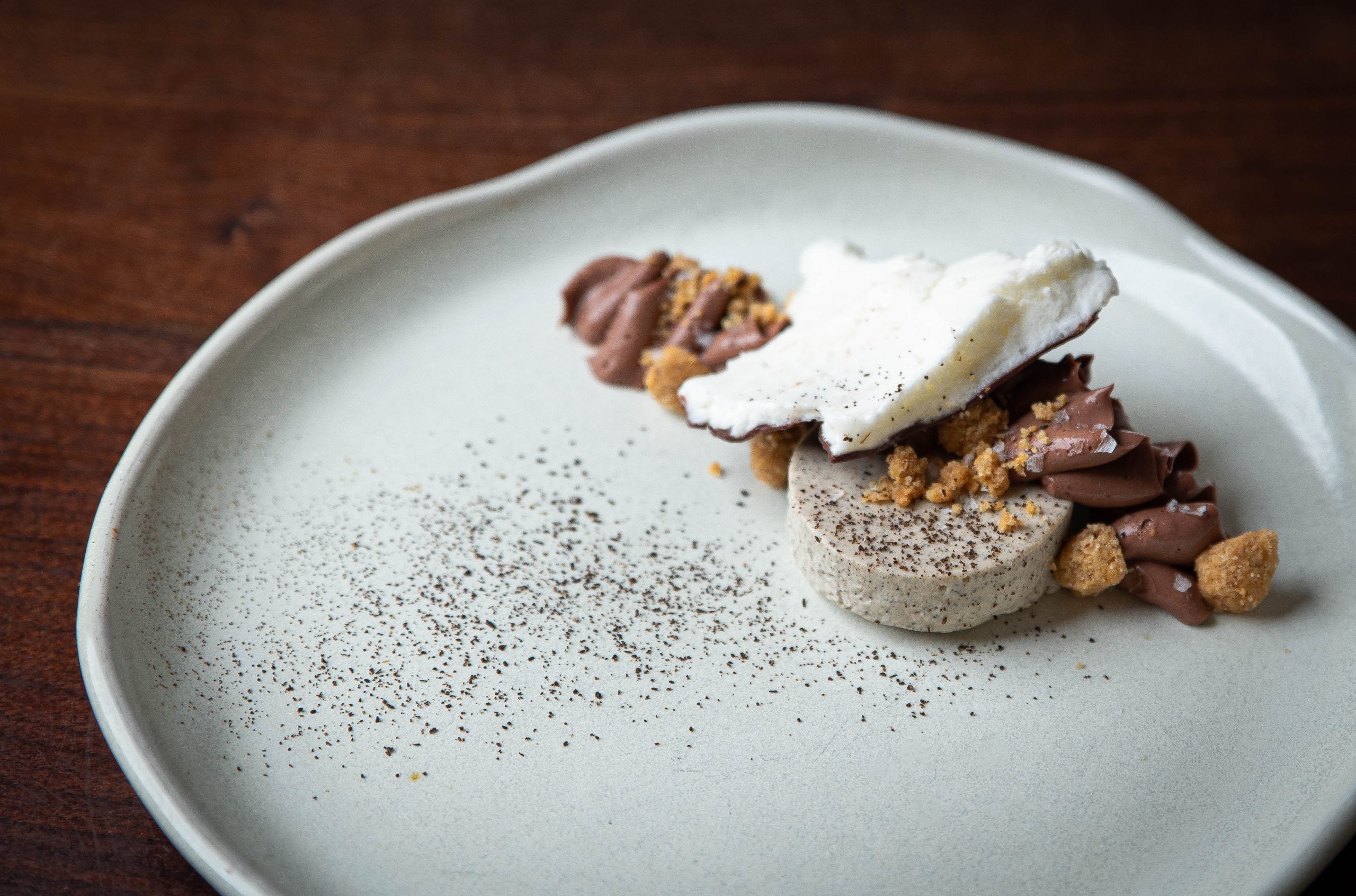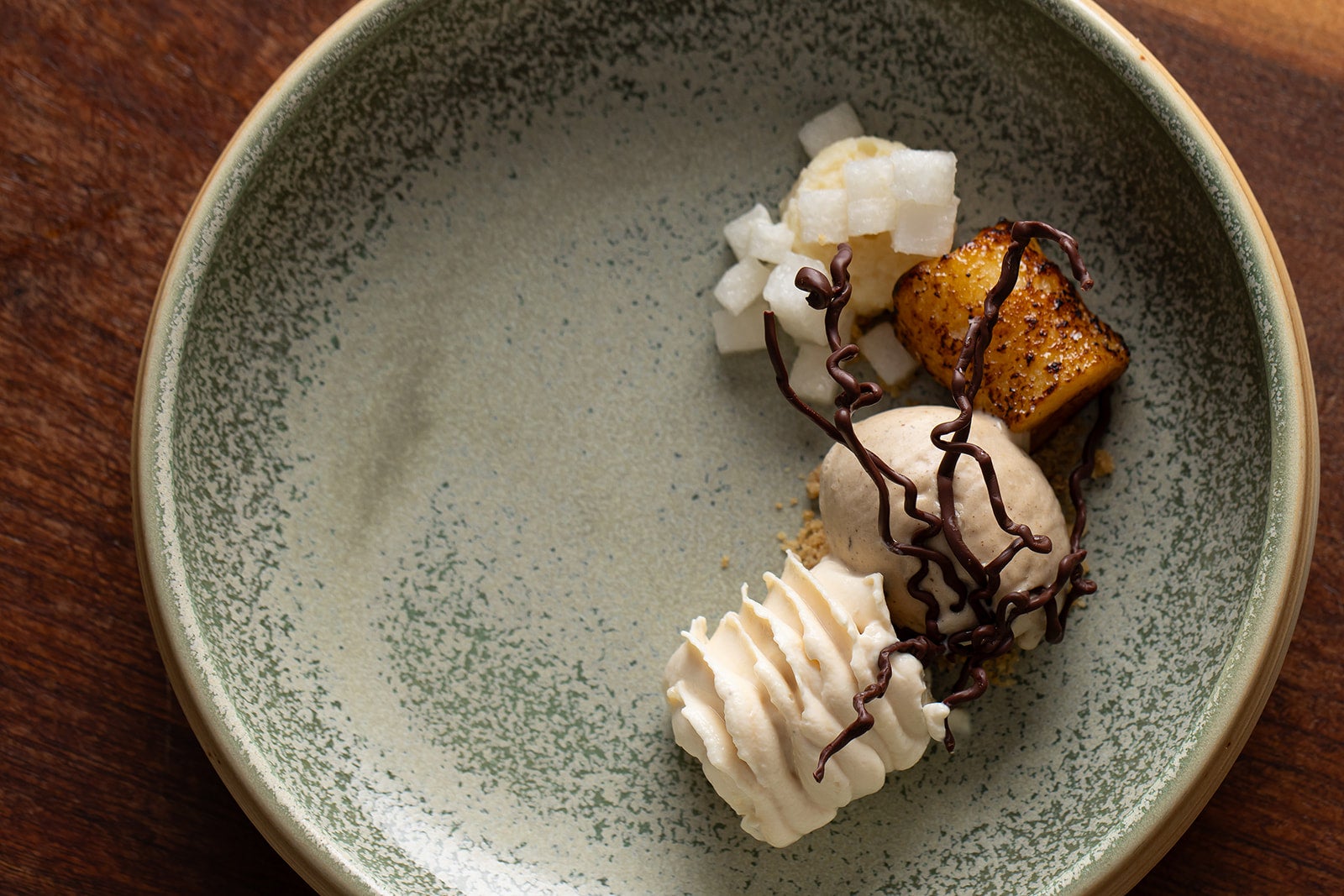
[ad_1]
At the age of 8, chef Camari Mick discovered her passion for the pastry arts. During her computer sessions in elementary school, a young Mick would dedicate her time to exploring the internet and submitting applications to culinary schools across the globe. She had big dreams, even then. “They would contact my mom and ask to speak with Camari Mick. She had to clarify that I was just a middle school student at the time,” she tells ESSENCE.
Growing up in a household where both of her parents were skilled cooks, Mick always was encouraged to assist them in the kitchen. One of her first assignments was snapping peas before Sunday dinner. Multiple cultures were embraced in her home—her mother Black American with Southern roots, her father Jamaican—so delicious and diverse dishes were always present on the family’s dining table. After devouring the savory delight of the night, Mick recalls a consistent craving for something sweet.
“My parents knew how to bake but that wasn’t their forte,” she says. “And one day my mom and I started baking together, and I just got really into it and became really good at it.”

Her passion for baking soon developed into a burgeoning side hustle for Mick as she spent her teenage years selling various delectable treats, including cakes, cobblers and pies, to both teachers and classmates alike. But she didn’t see being a pastry chef as a career possibility. She considered becoming a forensic pathologist, that is, examining the deceased to determine cause of death, until her father sent her on a completely different path.
“‘I think you should take that avenue into pastry making,’” Mick recalls her father saying to her. “‘You should consider that because people are always going to want to eat and celebrate, and you’ll always have a job.’ And that’s kind of how I just went through with it.” From there, she attended the restaurant school at Walnut Hill College where she received her associate and bachelor’s degree in pastry art.
Mick is now the executive pastry chef at The Musket Room, a Michelin-starred restaurant, as well as executive pastry chef and partner at Raf’s in NYC. Her Jamaican-American heritage shines through, even in her pastry creations. One of her favorite dishes is a goat tres leches with jerk ice cream. She enjoys straying from the traditional cow’s milk and instead utilizes dairy from goats, which is the type of milk she grew up drinking. “It is not an ingredient you tend to see on a fine dining menu,” she tells us.

The history of Jerk stems from runaway slaves using smoke to cook their meat and covering it with pimento wood to hide the fumes from rising so it wouldn’t disclose their location. In the plating of the jerk ice cream she incorporates, a bundle of chocolate branches using Jamaican chocolate covers the jerk ice cream to symbolize the history of the beloved seasoning. It’s all in the details.
Despite Mick’s obvious talents, she admits that on her journey, she’s had trouble “being taken seriously.” She recalls always having to work twice as hard as her white male counterparts. “I gotta do the 3:00 a.m. shift to prove myself and I have to uphold my standard as well as the standards of others too like my partners and bosses.” Still, that hasn’t hampered her success.
It also hasn’t hindered the sisterhood she’s found. Her community of chefs continues to hold her up and they support each other in a taxing industry. Mick is in a group chat with many other Black women in the culinary space, including Rasheeda Purdie, owner of Ramen by Ra, Shanarri Freeman, executive chef at Cadence, and Lana Lagomarsini, seen on Season 1 of Pressure Cooker on Netflix, along with many others. Despite each lady leading a hectic life, they unite to provide support at events and during challenging times. Even a simple act like reposting one another’s work and events reflects their constant effort to find ways to cheer each other on. “Whenever we’re hosting something special, one of our friends is going to be hosting a gala for example, we’re like, ‘Ok, let us know when tickets drop. What do you need? Do you need us to repost? How can we help you?’” she says. “We definitely try to come into each other’s lives and support each other.”
And with that support, she remains determined. In 2024, she envisions expanding her presence by hosting dinners, participating in renowned events such as the Charleston Food and Wine Festival, and she even has her eyes set on the ESSENCE Festival of Culture in New Orleans. She hopes to continue to inspire, and continue being successful, making her mark in a cutthroat and often less than colorful space.
“It’s not diverse at all. I’ve worked in some really great kitchens, but it is not diverse at all,” Mick says. “It can feel very disheartening to be like, you’re working your a– off and you don’t see anybody who looks like you.’ So as a young cook, it can be discouraging, but it’s about persevering.”
She adds, “I got to a point where it was just like, ‘I’m here for the education of it all, the experience, and then I’m going to take this back and pour it into a place where it’s more diverse when I’m running my own kitchen. And that’s exactly what I’m doing now.”
[ad_2]
Source link







